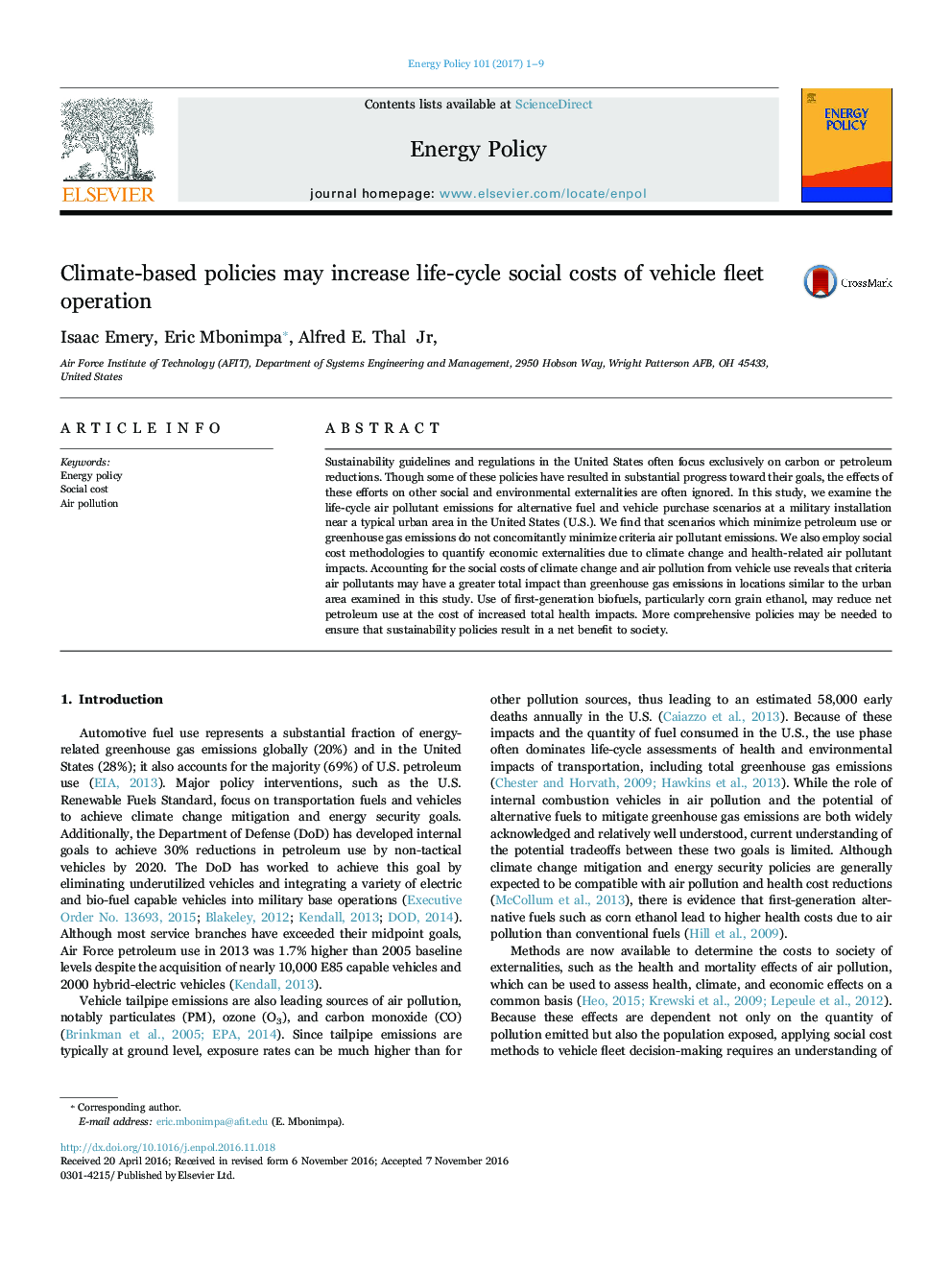| Article ID | Journal | Published Year | Pages | File Type |
|---|---|---|---|---|
| 5105985 | Energy Policy | 2017 | 9 Pages |
Abstract
Sustainability guidelines and regulations in the United States often focus exclusively on carbon or petroleum reductions. Though some of these policies have resulted in substantial progress toward their goals, the effects of these efforts on other social and environmental externalities are often ignored. In this study, we examine the life-cycle air pollutant emissions for alternative fuel and vehicle purchase scenarios at a military installation near a typical urban area in the United States (U.S.). We find that scenarios which minimize petroleum use or greenhouse gas emissions do not concomitantly minimize criteria air pollutant emissions. We also employ social cost methodologies to quantify economic externalities due to climate change and health-related air pollutant impacts. Accounting for the social costs of climate change and air pollution from vehicle use reveals that criteria air pollutants may have a greater total impact than greenhouse gas emissions in locations similar to the urban area examined in this study. Use of first-generation biofuels, particularly corn grain ethanol, may reduce net petroleum use at the cost of increased total health impacts. More comprehensive policies may be needed to ensure that sustainability policies result in a net benefit to society.
Related Topics
Physical Sciences and Engineering
Energy
Energy Engineering and Power Technology
Authors
Isaac Emery, Eric Mbonimpa, Alfred E. Jr,
